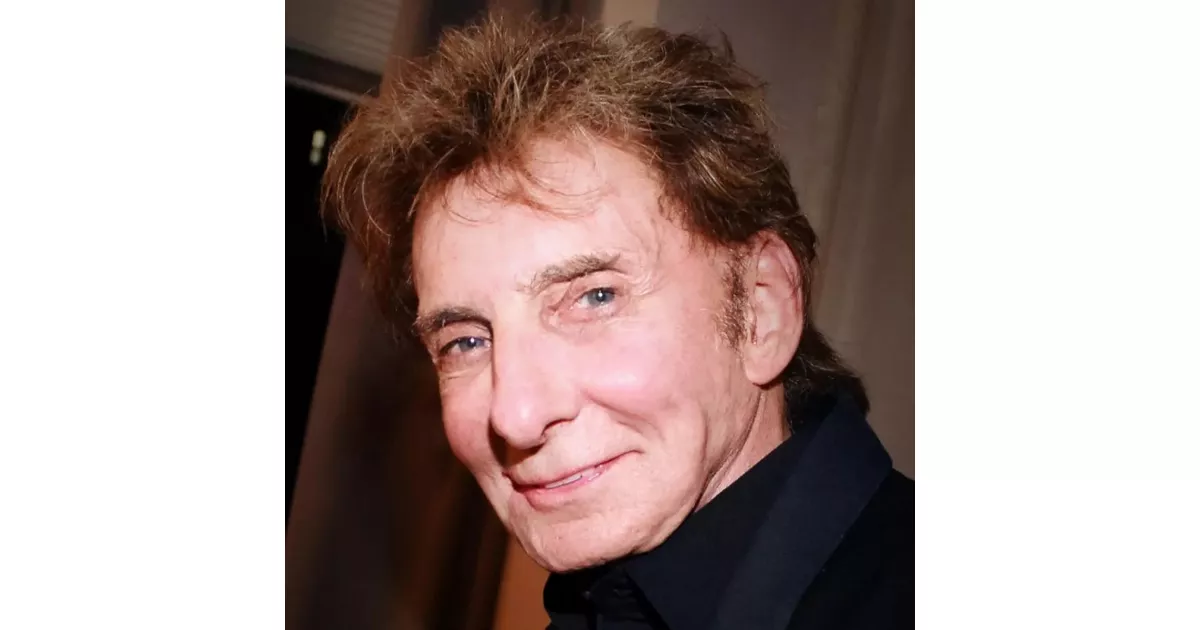Barry Manilow is a celebrated American singer-songwriter whose career has endured for over six decades. He is best known for his numerous hit songs such as "Could It Be Magic", "Looks Like We Made It", "Mandy", "I Write the Songs", "Ready to Take a Chance Again", "Can't Smile Without You", "Weekend in New England", and "Copacabana". Manilow's success has cemented his place as a prominent figure in popular music.
1928: Comedian Harmonists formed
In 1928, the Comedian Harmonists, a male singing group, formed in Germany.
1934: Comedian Harmonists career end
In 1934, the career of the Comedian Harmonists, a male singing group, ended in Germany.
1941: Release of 'I Don't Want to Walk Without You'
In 1941, Jule Styne and Frank Loesser released 'I Don't Want to Walk Without You', which Barry Manilow later remade.
June 17, 1943: Barry Manilow's Birth
On June 17, 1943, Barry Manilow, originally named Barry Alan Pincus, was born. He became an American singer and songwriter with a career spanning over sixty years.
1943: "Jingle Bells" recording recreation
In 1990, Barry Manilow recreated a 1943 million-selling recording of "Jingle Bells" by Bing Crosby and The Andrews Sisters on his Christmas album.
1959: Lambert, Hendricks and Ross record "Cloudburst"
In 1959, Lambert, Hendricks and Ross recorded the vocalese jazz standard "Cloudburst", which was later included on Barry Manilow's debut album.
1961: High School Graduation
In 1961, Barry Manilow graduated from Eastern District High School in Williamsburg, Brooklyn, where he also met his future wife, Susan Deixler.
1964: Marriage to Susan Deixler
In 1964, Barry Manilow married Susan Deixler, his high school sweetheart. He later admitted that while he was in love with her, his strong desire for a music career and his immaturity placed a strain on their relationship.
1964: Composing Original Score for 'The Drunkard'
In 1964, Barry Manilow met Bro Herrod, who commissioned him to arrange songs for 'The Drunkard'. Instead, Manilow wrote an entire original score for the Off Broadway musical, which ran for eight years at the 13th Street Repertory Theatre in New York.
December 1965: Playboy Encouragement
In December 1965, Barry Manilow credits the response he received from Playboy for giving him the courage to leave everything behind and pursue a career in music.
1965: The Four Seasons release Let's Hang On!
In 1965, The Four Seasons released the song "Let's Hang On!", which Barry Manilow later covered.
1966: Marriage Annulled
In 1966, Susan Deixler had her marriage to Barry Manilow annulled.
1967: Musical Director for WCBS-TV Series
In 1967, Barry Manilow became the musical director for the WCBS-TV series Callback.
January 27, 1968: Premiere of Callback
On January 27, 1968, the WCBS-TV series Callback, for which Barry Manilow was the musical director, premiered.
1969: Signing with Columbia/CBS Music
In 1969, Barry Manilow signed with Columbia/CBS Music under Tony Orlando, who produced Manilow and a group of studio musicians under the name "Featherbed" on Bell Records.
1971: Becomes Bette Midler's Pianist
In 1971, Bette Midler saw Barry Manilow's act and chose him as her pianist at the Continental Baths in New York City.
1972: Producing The Divine Miss M
In 1972, Barry Manilow produced Bette Midler's debut record album, The Divine Miss M.
1972: Release of Brandy (You're a Fine Girl)
In 1972, Looking Glass released the song "Brandy (You're a Fine Girl)" on Clive Davis's Epic label.
July 1973: Release of Debut Album Barry Manilow
In July 1973, Bell Records released Barry Manilow's debut album, Barry Manilow, featuring piano-driven pop and guitar-driven rock music, including the song "I Am Your Child".
1973: Producing Bette Midler's Second Album
In 1973, Barry Manilow produced Bette Midler's second album, Bette Midler.
1973: First Grammy Nomination
In 1973, Barry Manilow received his first Grammy Award nomination as a producer, arranger, and performer for his work on 'The Divine Miss M' album by Bette Midler.
August 20, 1974: Recording session for Mandy
On August 20, 1974, during the recording session, the song formerly titled "Brandy" was changed to "Mandy" due to the existing song "Brandy (You're a Fine Girl)" by Looking Glass.
November 1974: Introduction of Arista Records
In November 1974, Clive Davis introduced Columbia Pictures' new record division, Arista Records, after revitalizing Columbia Pictures' music division.
January 1975: Bell Records' Final Number 1 Hit
In January 1975, Bell Records had its final number 1 hit with Barry Manilow's 1974 release of the single "Mandy", followed by its final single, "Look in My Eyes Pretty Woman" by Tony Orlando and Dawn.
March 22, 1975: Appearance on American Bandstand
On March 22, 1975, Barry Manilow appeared on American Bandstand to promote his second album, which marked the beginning of his friendship and collaboration with Dick Clark.
1975: End of Collaboration with Bette Midler
In 1975, Barry Manilow concluded his work with Bette Midler, a collaboration that began in 1971.
1976: Recording Barry Manilow Live
In 1976, Barry Manilow recorded "Barry Manilow Live" at the Gershwin Theatre.
March 2, 1977: The Barry Manilow Special Premieres
On March 2, 1977, The Barry Manilow Special, featuring Penny Marshall as his guest, premiered to an audience of 37 million and was later nominated for four Emmys, winning for Outstanding Special–Comedy, Variety or Music.
1977: Release of Barry Manilow Live
In 1977, Barry Manilow released the triple-platinum album Barry Manilow Live, which included a medley of commercial jingles that he had written and sung in the 1960s.
1978: Relationship with Garry Kief Begins
In 1978, Barry Manilow began a relationship with TV executive Garry Kief, who soon became his manager.
1978: Release of the song "Copacabana"
In 1978, Barry Manilow released the song "Copacabana".
1978: Paul Davis had a hit with "I Go Crazy"
In 1978, Paul Davis had a hit song with "I Go Crazy".
1978: The Second Barry Manilow Special Nomination
In 1978, The Second Barry Manilow Special, with Ray Charles as his guest, was nominated for four Emmys.
1978: Royal Albert Hall Concert Special
In 1978, a one-hour special from Barry Manilow's sold-out concert at the Royal Albert Hall aired in the UK.
February 11, 1979: Standing Room Only Concert Airs on HBO
On February 11, 1979, a concert from Barry Manilow's Even Now Tour at the Greek Theater in Los Angeles aired on the HBO series Standing Room Only.
May 23, 1979: The Third Barry Manilow Special Airs
On May 23, 1979, ABC aired The Third Barry Manilow Special, featuring John Denver as his guest, which was nominated for two Emmy awards and won for Outstanding Choreography.
1979: Release of Dionne and Ships
In 1979, Barry Manilow produced Dionne Warwick's "comeback" album Dionne, which went platinum, and he had a top ten hit with the song "Ships" from the album One Voice.
1979: Satirized in "I Need Your Help Barry Manilow"
In 1979, Barry Manilow's musical style was satirized in the song "I Need Your Help Barry Manilow" performed by Ray Stevens, referencing several of Manilow's hit songs and highlighting their themes of suffering and misfortune.
1980: Release of Barry
In 1980, Barry Manilow released the self-titled album Barry, which was his first album to not reach the top ten in the United States, stopping at number 15.
1980: One Voice Special Emmy Nomination
In 1980, Barry Manilow's One Voice special, featuring Dionne Warwick, was nominated for an Emmy for Outstanding Music Direction at the 32nd Primetime Emmy Awards.
1981: Release of If I Should Love Again
In 1981, Barry Manilow released the album If I Should Love Again, which featured two top 40 recordings that hit number 1 on the AC chart and a hit cover of The Four Seasons' "Let's Hang On!".
1982: Broadcast of Royal Albert Hall Concert
In 1982, a concert from Barry Manilow's show at the Royal Albert Hall was broadcast in England, and the live album and video Barry Live in Britain were released from his Royal Albert Hall shows.
August 27, 1983: Blenheim Palace Concert
On August 27, 1983, Barry Manilow performed a landmark open-air concert at Blenheim Palace in Britain, attended by an estimated 40,000 people.
December 1983: Endowment of Music Departments
In December 1983, Barry Manilow reportedly endowed the music departments at six major universities in the United States and Canada to recognize and encourage new musical talent.
1984: Release of 2:00 AM Paradise Cafe and Showtime documentary
In 1984, Barry Manilow released "2:00 AM Paradise Cafe", a jazz/blues collection. Showtime also aired a documentary that year of Manilow recording the album with jazz legends. Concert specials from the National Exhibition Centre also aired in England.
1984: Release of "When October Goes"
In 1984, Barry Manilow released his recording of "When October Goes", with lyrics by Mercer.
1984: Radio City Music Hall Record
In 1984, Barry Manilow's ten-night run at Radio City Music Hall set a box-office sales record of nearly $2 million, making him the top draw in the venue's 52-year history.
1985: Leaving Arista Records and international music phase
In 1985, Barry Manilow left Arista Records for RCA Records, releasing the pop album "Manilow" and beginning a phase of international music, performing songs in multiple languages. A concert special aired in Japan where he played "Sakura" on the koto.
1985: Lead role in CBS film Copacabana
In 1985, Barry Manilow starred in the CBS film "Copacabana", based on his song, portraying Tony Starr. He wrote all the songs for the movie. A soundtrack album was also released.
1985: Copacabana TV Movie
In 1985, Barry Manilow starred in the television movie Copacabana, executive produced by Dick Clark.
October 1986: Lobbying against copyright bill
In October 1986, Barry Manilow, along with others, went to Washington, D.C. to lobby against a copyright bill that would affect songwriter-producer licensing.
1987: Release of autobiography and Swing Street album
In 1987, McGraw-Hill published Barry Manilow's autobiography, "Sweet Life: Adventures on the Way to Paradise". He also returned to Arista Records with the release of the album "Swing Street".
March 1988: CBS aired Manilow's Big Fun on Swing Street special
In March 1988, CBS aired "Manilow's Big Fun on Swing Street" special, featuring songs and guests from his "Swing Street" and "2:00 am Paradise Cafe" albums. The special won an Emmy for Outstanding Art Direction.
1988: Performance at AIDS Concert '88 and Disney song
In 1988, Barry Manilow performed at That's What Friends Are For: AIDS Concert '88. Bette Midler sang Manilow's composition, "Perfect Isn't Easy", in the Disney film "Oliver & Company".
1988: Big Fun on Swing Street special aired
In 1988, CBS aired the "Big Fun on Swing Street" special.
June 10, 1989: Final performance of Barry Manilow at the Gershwin
On June 10, 1989, Barry Manilow concluded a series of 44 appearances in "Barry Manilow at the Gershwin" at the Gershwin Theatre.
June 22, 1989: Appearance on The Tonight Show
On June 22, 1989, Barry Manilow appeared on The Tonight Show with Johnny Carson to address rumors that he was engaged to porn star Robin Byrd, clarifying that they were just friends.
1989: Live on Broadway Tour
In 1989 Barry Manilow went on the Live on Broadway Tour.
1989: Release of Barry Manilow album
In 1989, Barry Manilow released the album "Barry Manilow", which contained "Please Don't Be Scared", "Keep Each Other Warm", and "The One That Got Away". This album shifted his career towards covers and compilations.
1989: Release of cover tunes started
In 1989, Barry Manilow started releasing cover tunes, beginning with tracks on his self-titled album "Barry Manilow".
1989: Benefit Concert After Hurricane Hugo
In 1989, after Hurricane Hugo impacted the Charleston, South Carolina area, Barry Manilow held a benefit concert at the University of South Carolina's Carolina Coliseum in Columbia. He also asked concertgoers to bring canned food for residents in disaster areas, and Mayor T. Patton Adams declared it "Barry Manilow Day."
1990: Christmas LP Because It's Christmas released
In 1990, Barry Manilow released the Christmas LP "Because It's Christmas", featuring a collaboration with Exposé on "Jingle Bells".
1990: Eolia Special and animated film compositions
In 1990, Japan aired "National Eolia Special: Barry Manilow On Broadway". Manilow also began composing songs for animated films with Don Bluth.
1991: Production of Nancy Wilson's album With My Lover Beside Me
In 1991, Barry Manilow produced Nancy Wilson's album, "With My Lover Beside Me", based on Johnny Mercer's lyrics. Manilow is featured in a duet on the final cut.
1991: Release of Showstoppers album
In 1991, Barry Manilow released "Showstoppers", a collection of Broadway songs.
1991: Audio Home Recording Act of 1991
In 1991, The Audio Home Recording Act was introduced.
February 19, 1992: Testimony for the Audio Home Recording Act
On February 19, 1992, Barry Manilow testified in support of H.R. 3204, The Audio Home Recording Act of 1991, before the House Committee.
October 28, 1992: Signing of the Audio Home Recording Act
On October 28, 1992, President George H. W. Bush signed The Audio Home Recording Act of 1991 into law.
December 23, 1993: Arizona Judge Sues Over Concert Volume
On December 23, 1993, Arizona Court of Appeals Judge Philip Espinosa attended a Barry Manilow concert with his wife and later sued Manilow over the audio volume, claiming it caused tinnitus.
1993: Invitation by Mercer's widow
In 1993, Barry Manilow was invited by Johnny Mercer's widow to complete Mercer's songs.
1993: PBS aired Barry Manilow: The Best of Me
In 1993, PBS aired "Barry Manilow: The Best of Me", taped at Wembley Arena in England. He also launched Copacabana, a musical play.
January 15, 1994: Canceled Performance at Ethnic Pride and Heritage Festival
On January 15, 1994, Barry Manilow canceled a performance at the Ethnic Pride and Heritage Festival in Atlantic City, New Jersey, due to it becoming a partisan event. The event was a pre-inaugural activity for then New Jersey Governor-elect Christie Whitman.
February 8, 1994: Lawsuit Against KBIG Radio Station
On February 8, 1994, Barry Manilow sued Los Angeles radio station KBIG (104.3 FM), seeking $13 million in damages and $15 million in punitive damages. He claimed that their advertisement, suggesting people listen to KBIG because it does not play Manilow's music, was causing irreparable damage to his professional reputation.
1994: Thumbelina musical score
In 1994, Barry Manilow co-wrote the Broadway-style musical scores for "Thumbelina".
1994: Singin' with the Big Bands album released
In 1994, Barry Manilow released the album "Singin' with the Big Bands".
1995: The Pebble and the Penguin musical score
In 1995, Barry Manilow co-wrote the Broadway-style musical scores for "The Pebble and the Penguin".
December 1996: A&E aired Barry Manilow: Live By Request
In December 1996, A&E aired "Barry Manilow: Live By Request", attracting an estimated 2.4 million viewers.
1996: Summer of '78 album released
In 1996, Barry Manilow released "Summer of '78", including the hit "I Go Crazy", originally a hit for Paul Davis in 1978.
March 1997: VH-1 aired Barry Manilow: The Summer of '78
In March 1997, VH-1 aired "Barry Manilow: The Summer of '78", a special featuring Manilow at the piano.
July 1997: Manilow Donates to Settle Volume Lawsuit
In July 1997, it was reported that Barry Manilow settled the lawsuit filed by Arizona Court of Appeals Judge Philip Espinosa by donating $5,000 to the American Tinnitus Association.
September 23, 1997: Trial Set for Volume Lawsuit
The trial for the lawsuit filed by Arizona Court of Appeals Judge Philip Espinosa against Barry Manilow over the audio volume of a December 23, 1993, concert was set for September 23, 1997.
November 23, 1997: Harmony: A New Musical preview ended
On November 23, 1997, the preview of "Harmony: A New Musical", co-written by Manilow and Sussman, ended its run at the La Jolla Playhouse.
1998: Manilow Sings Sinatra released
In 1998, Barry Manilow released "Manilow Sings Sinatra", a tribute to Frank Sinatra.
1998: Release of Manilow Sings Sinatra album
In 1998, Barry Manilow released the album "Manilow Sings Sinatra".
October 23, 1999: NBC aired StarSkates Salute to Barry Manilow
On October 23, 1999, NBC aired "StarSkates Salute to Barry Manilow", featuring figure skaters performing to Manilow's music. Manilow also performed.
1999: Grammy nomination for Manilow Sings Sinatra
In 1999, Barry Manilow received a Grammy nomination for Best Traditional Pop Vocal Album for "Manilow Sings Sinatra".
April 11, 2000: TNN aired Manilow Country
On April 11, 2000, The Nashville Network (TNN) aired "Manilow Country", featuring country stars singing Manilow hits with a "country" twist. This special became one of TNN's highest-rated concert specials.
June 2000: DirecTV aired Manilow Live!
In June 2000, DirecTV aired the concert special "Manilow Live!", featuring Barry Manilow with his band, a 30-piece orchestra, and a choir.
February 2002: Arista released Ultimate Manilow greatest hits album
In February 2002, Arista released the greatest hits album, "Ultimate Manilow", marking Barry Manilow's return to the charts.
May 18, 2002: CBS special Ultimate Manilow
On May 18, 2002, Barry Manilow returned to CBS with "Ultimate Manilow", filmed in the Kodak Theatre in Hollywood, California. The special was nominated for an Emmy.
2003: Cancellation of Harmony tryout run
In 2003, "Harmony" was originally scheduled for a tryout run in Philadelphia before going to Broadway, but was canceled due to financial difficulties.
2005: Manilow and Sussman regain rights to Harmony
In 2005, Barry Manilow and Sussman won back the rights to the musical "Harmony" in a legal battle.
2005: Hurricane Katrina Relief Efforts
In 2005, to help after Hurricane Katrina, Barry Manilow personally matched every dollar donated to the American Red Cross through the Manilow Fund for Health and Hope website, tripling the original donation. The fund delivered $150,000 to the American Red Cross.
2005: End of Barry Manilow Scholarship
The Barry Manilow Scholarship was awarded for four consecutive years, and 2005 marked the final year.
June 2006: Music Used to Deter Youths in Australia
In June 2006, Australian officials blasted Barry Manilow's music to deter gangs of youths from congregating in a residential area late at night.
2009: Honorary Clio Award
In 2009, Barry Manilow was awarded an Honorary Clio at the 50th Anniversary Clio Awards in Las Vegas for his work as a jingle writer and singer during the 1960s.
October 27, 2011: Contribution to Joplin, Missouri After Tornado
On October 27, 2011, Barry Manilow visited Joplin, Missouri, and his Manilow Music Project made a contribution of $300,000 to restore the musical program and instruments lost after a tornado destroyed a significant portion of the city.
2013: Harmony was staged in Atlanta
In 2013, the musical "Harmony" was staged in Atlanta.
2014: Marriage to Garry Kief
In 2014, Barry Manilow married Garry Kief after same-sex marriage became legal in California. They kept their relationship and his sexual orientation private.
2015: Latest Grammy Nomination
In 2015, Barry Manilow received his latest Grammy Award nomination, marking his 15th nomination across several decades (from 1973 to 2015) as a producer, arranger, and performer.
2015: Marriage Made Headlines
In 2015, the media reported Barry Manilow's marriage to Garry Kief after Suzanne Somers disclosed that the two men had privately exchanged vows.
April 2017: Manilow Comes Out as Gay
In April 2017, Barry Manilow officially came out as gay and shared that his fans were supportive of his marriage to Garry Kief.
2017: Coming Out as Gay
In 2017, Barry Manilow came out as gay and stated that he had been in love with Susan Deixler, and the failure of their marriage was not related to his sexual orientation.
2022: Harmony debuted in New York
In 2022, "Harmony" had its New York debut at the National Yiddish Theatre Folksbiene.
2023: Harmony came to Broadway
In late 2023, "Harmony" came to Broadway for a three-month run at the Ethel Barrymore Theatre.
September 23, 2025: Release of "Once Before I Go"
On September 23, 2025, Barry Manilow released "Once Before I Go," a song penned by Peter Allen and Dean Pitchford. The song was a single from his upcoming album, What a Time.
December 22, 2025: Diagnosis of Lung Cancer
On December 22, 2025, Barry Manilow, who had been a smoker from age 9 to 39, announced that he had been diagnosed with early-stage lung cancer, which would require surgery.
Mentioned in this timeline
Home Box Office HBO is an American pay television service...
CBS Broadcasting Inc CBS is a prominent American commercial broadcast...
California is a U S state on the Pacific Coast...
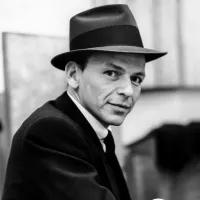
Frank Sinatra nicknamed Chairman of the Board and Ol' Blue...
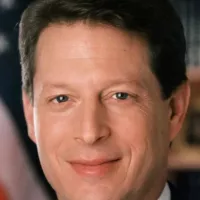
Al Gore served as the th U S Vice President...
New Zealand is an island country in the southwestern Pacific...
Trending
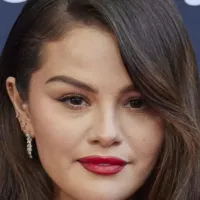
36 minutes ago Selena Gomez's Spiced-Plum Manicure and TikTok Clone Theory Spark Buzz
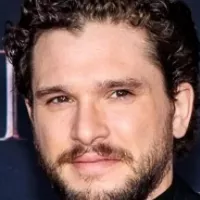
36 minutes ago Kit Harington and Sophie Turner Gag After On-Screen Kiss in New Movie

36 minutes ago Trump administration updates, Iran nuclear efforts, and White House controversies unfold.
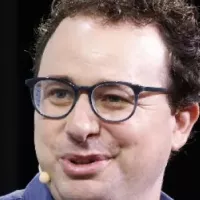
37 minutes ago Dario Amodei Highlights India's Central Role in Shaping AI's Future at AI Summit.

2 hours ago Yoon Suk Yeol, South Korean ex-president, receives life sentence for insurrection and martial law.

4 hours ago Maya Hawke and Christian Lee Hutson celebrated wedding with Stranger Things cast present.
Popular

Jesse Jackson is an American civil rights activist politician and...
Randall Adam Fine is an American politician a Republican who...

Pam Bondi is an American attorney lobbyist and politician currently...

Barack Obama the th U S President - was the...

Martin Luther King Jr was a pivotal leader in the...

Ken Paxton is an American politician and lawyer serving as...
